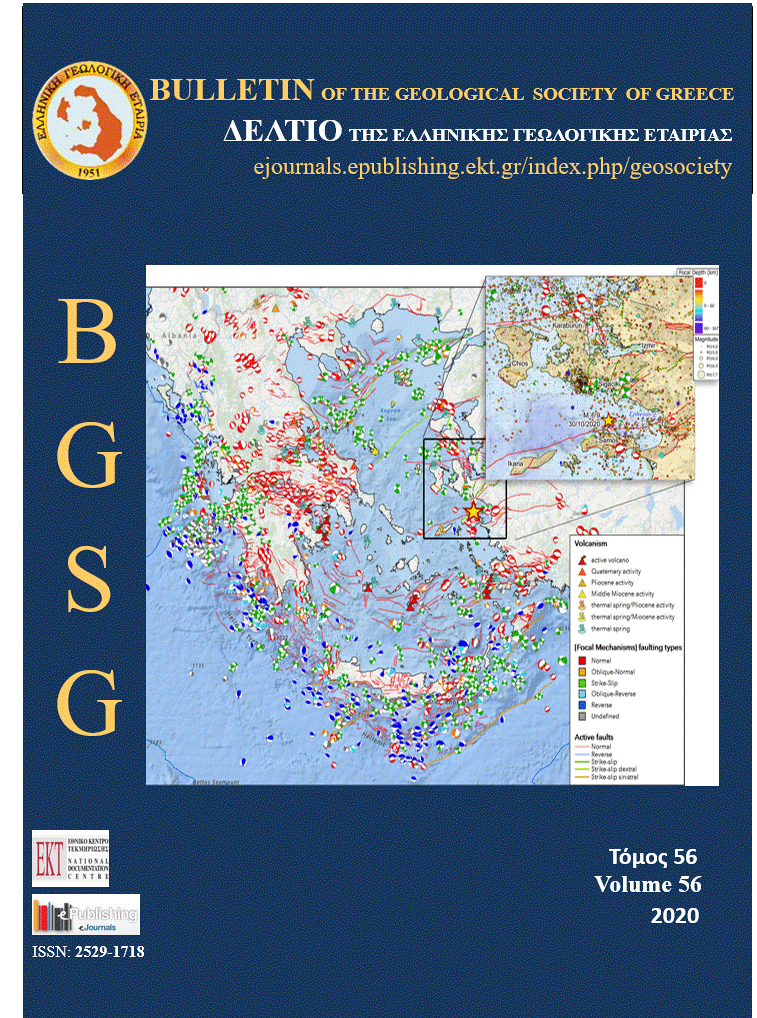Hydrochemical characteristics of the Oropos coastal aquifers, Attica, Greece

Abstract
This article deals with the hydrochemistry of coastal aquifers of the Oropos plain, Attica, Greece. It is the first study which presents hydrochemical data of the Oropos plain groundwater. Groundwater samples from 34 wells were collected and analyzed for major and heavy metal constituents. Groundwater was differentiated between the Pleistocene confined aquifer and the group of the Holocene, the Miocene and the Mesozoic aquifers based on the electrical conductivity (EC) values and the chlorides content. Groundwater in the Pleistocene sediments presented EC values ranging between 766 and 971μS/cm and chlorides between 95-163mg/l. The group of the rest aquifers presented EC values up to 3770 μS/cm and chlorides up to 993mg/l. The Pleistocene aquifer seems to be protected from seawater intrusion, although, it is located adjacent to the shoreline. In addition, most of the heavy metal concentration exceeded the EU limits. Cd, Fe, Pb, Ni have been determined at 82, 2500, 817, 217 μg/lit respectively. Groundwater was, also, categorized into 2 main water types that of Ca-Mg-HCO3 type indicating recharge of fresh water and that of Ca-Mg-Cl type indicating reverse cation exchange of old Na-Cl waters.
Article Details
- How to Cite
-
Hermides, D., Zaxariadis, D., & Stamatis, G. (2020). Hydrochemical characteristics of the Oropos coastal aquifers, Attica, Greece. Bulletin of the Geological Society of Greece, 56(1), 39–55. https://doi.org/10.12681/bgsg.20939
- Issue
- Vol. 56 No. 1 (2020)
- Section
- Environmental Geology

This work is licensed under a Creative Commons Attribution-NonCommercial 4.0 International License.
Authors who publish with this journal agree to the following terms:
Authors retain copyright and grant the journal right of first publication with the work simultaneously licensed under a Creative Commons Attribution Non-Commercial License that allows others to share the work with an acknowledgement of the work's authorship and initial publication in this journal.
Authors are able to enter into separate, additional contractual arrangements for the non-exclusive distribution of the journal's published version of the work (e.g. post it to an institutional repository or publish it in a book), with an acknowledgement of its initial publication in this journal. Authors are permitted and encouraged to post their work online (preferably in institutional repositories or on their website) prior to and during the submission process, as it can lead to productive exchanges, as well as earlier and greater citation of published work.


